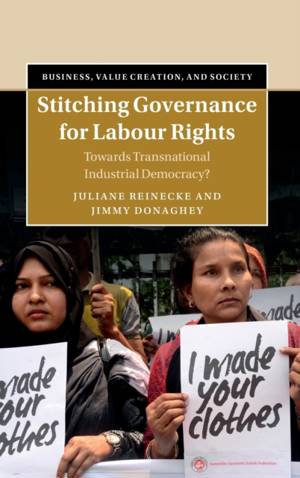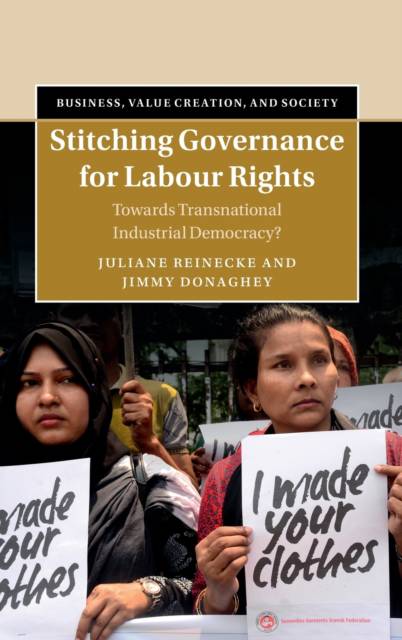
- Afhalen na 1 uur in een winkel met voorraad
- Gratis thuislevering in België vanaf € 30
- Ruim aanbod met 7 miljoen producten
- Afhalen na 1 uur in een winkel met voorraad
- Gratis thuislevering in België vanaf € 30
- Ruim aanbod met 7 miljoen producten
Zoeken
Stitching Governance for Labour Rights
Towards Transnational Industrial Democracy?
Juliane Reinecke, Jimmy Donaghey
€ 180,45
+ 360 punten
Omschrijving
Transnational labour governance is in urgent need of a new paradigm of democratic participation, with those who are most affected - typically workers - placed at the centre. To achieve this, principles of industrial democracy and transnational governance must come together to inform institutions within global supply chains. This book traces the development of 'transnational industrial democracy', using responses to the 2013 Rana Plaza disaster as the empirical context. A particular focus is placed on the Bangladesh Accord and the JETI Workplace Social Dialogue programme. Drawing on longitudinal field research from 2013-2020, the authors argue that the reality of modern-day supply chain capitalism has neither optimal institutional frameworks nor effective structures of industrial relations. Informed by principles of industrial democracy, the book aims at enhancing emerging forms of private transnational governance as second-best institutions.
Specificaties
Betrokkenen
- Auteur(s):
- Uitgeverij:
Inhoud
- Aantal bladzijden:
- 220
- Taal:
- Engels
- Reeks:
Eigenschappen
- Productcode (EAN):
- 9781108486873
- Verschijningsdatum:
- 16/03/2023
- Uitvoering:
- Hardcover
- Formaat:
- Genaaid
- Afmetingen:
- 152 mm x 229 mm
- Gewicht:
- 539 g

Alleen bij Standaard Boekhandel
+ 360 punten op je klantenkaart van Standaard Boekhandel
Beoordelingen
We publiceren alleen reviews die voldoen aan de voorwaarden voor reviews. Bekijk onze voorwaarden voor reviews.











